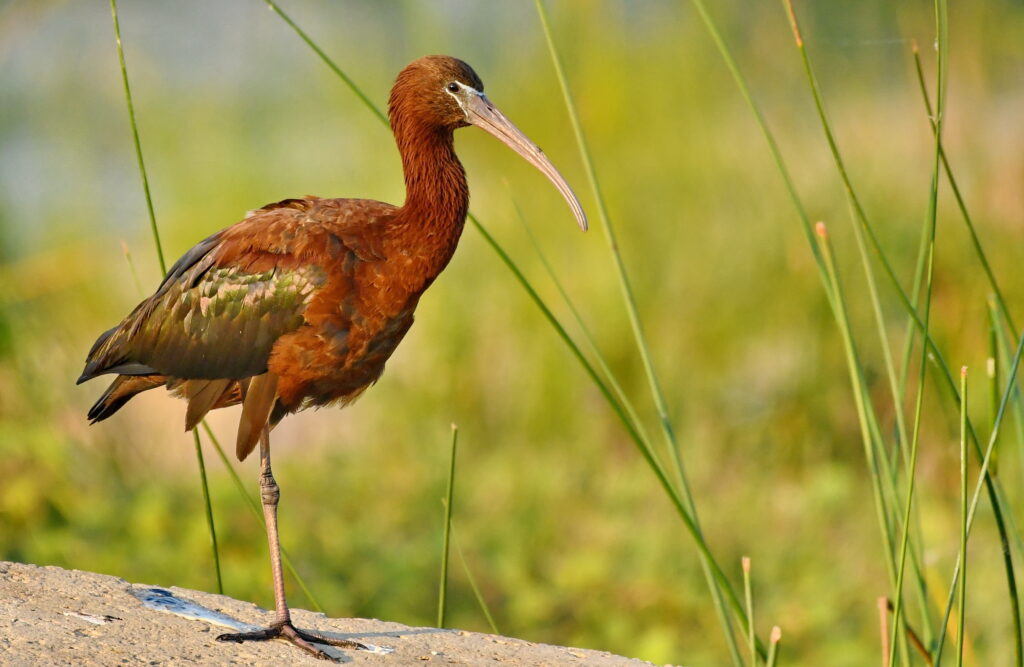Glossy Ibises are considered to be of “low concern” globally because their populations, though decreasing alongside much of the earth’s bird populations, remain relatively stable. From the Americas to Europe to Africa, the Glossy Ibis is found in freshwater wetlands in regions all over the world. In recent years, Glossy Ibises have been thriving in Spain especially, thanks to the wetland habitats that form as rice cultivation increases. While they are still declining, the overall picture of the global state of the Glossy Ibis seems fairly promising, but there is a place where they have, unfortunately faced the grim reality of extinction, if only locally.
Related Article: The American Kestrel: The Puzzling Decline of a Common Bird
In China, the Glossy Ibis has long been a rare and coveted sight. The waterways that used to be its home have not seen many Glossy Ibises since the declaration by the Chinese Red List of Endangered Animal Species, naming the Glossy Ibis as extinct in China. This declaration did not last and the Glossy Ibis was instead declared to be a national first-class protected wild animal after a few sparse Glossy Ibis sightings proved that the bird was not entirely gone.
Now, a Glossy Ibis has once again made an appearance in China, generating global interest and plenty of buzz from Chinese birdwatchers and nature enthusiasts. The Glossy Ibis was spotted in the Shuanggui Lake national wetland park in Liangping district of southwest China’s Chongqing Municipality. It is the first ever sighting of a Glossy Ibis in Chongqing.
This comes after nearly a decade of wetland restoration and protections by the Chinese branch of the World Wildlife Fund. China’s waterways are home to a diverse array of unique wildlife and, unlike the Glossy Ibis, many of these animals are not found elsewhere. The Baiji, or Yangtze River Dolphin is one such animal which sadly succumbed to extinction in 2002.
The arrival of a Glossy Ibis in Chongqing may not bring back the animals that have been lost to habitat degradation throughout Chinese waterways, but it is a hopeful sign that the changes that have been put into place to protect these delicate habitats may be yielding results. This ibis represents the hope that future generations may yet see the restoration of China’s most vulnerable species and the habitats on which they depend.
Popular Article: Minnesota Study Examines Swallow Eggs for Forever Chemicals

